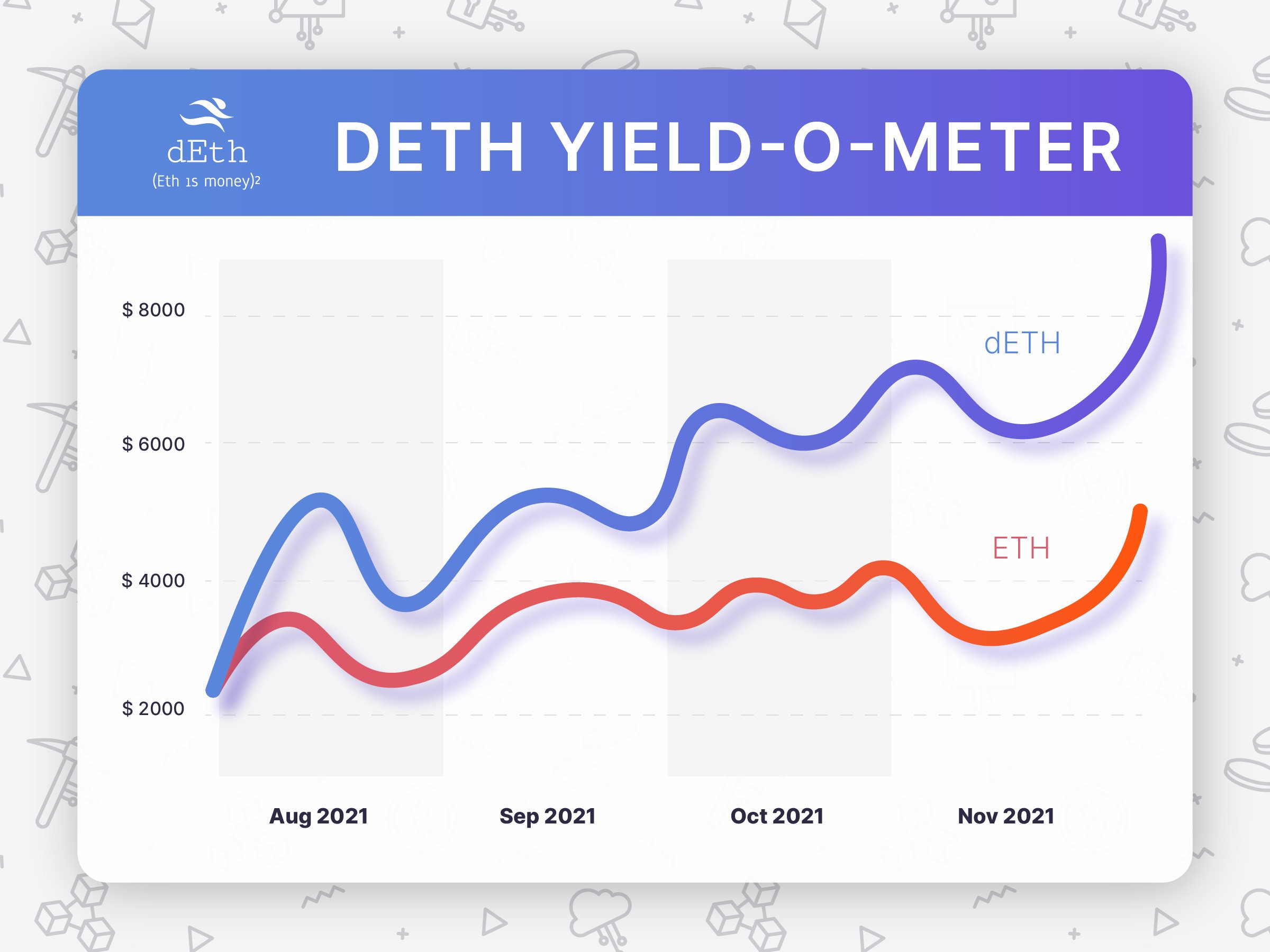
The world of finance is being turned on its head thanks to the new wave of innovative Decentralized Finance (DeFi) applications being created. The transparency and decentralization offered by DeFi protocols are unparalleled, making it impossible for traditional financial services to match.
The oldest and most time-tested financial products are now being replicated on the blockchain. Not only that, but we are also witnessing the birth of new and never-before-seen financial services such as crypto synthetic assets, decentralized exchanges (DEXs), and decentralized insurance, just to name a few.
One of the newest DeFi innovations with extreme potential is dETH, a form of tokenized Ether that is perpetually leveraged.
Meet dETH
For crypto enthusiasts and investors who have realized the enormous potential of Ethereum, and are familiar with smart contract risks and leverage trading, then dETH is for you.
dETH is a tokenized derivative of Ethereum. In other words, dETH is a synthetic asset that transparently represents the value of Ether.
The only difference is that the dETH token has roughly 2x leverage incorporated into its code. Meaning that if the price of Ethereum goes up, your dETH will grow roughly twice as fast as if you had simply held Ether.
The downside of holding dETH is that the potential losses are also greater. If the price of Ether drops, dETH responds by rapidly selling ETH to pay off its debt, resulting in dETH holders being able to withdraw less ETH collateral after the crash.
The best time to buy dETH is directly after a market crash or correction. As a bull market continues, dETH holders’ underlying claimable ETH also climbs.
To illustrate the market conditions under which dETH performs best, the dETH interface has an interactive chart showing dETH’s performance as compared to a regular ETH position.
How does it work?
One of dETH’s main advantages is that, unlike centrally managed perpetual contracts, it is entirely built within a decentralized framework. At the bottom layer, dETH runs on the Ethereum blockchain and uses Ether as collateral.
The second layer leverages the MakerDao DeFi protocol, where it supplies ETH and loans the DAI stablecoin in order to create a target risk exposure of roughly 2x. This targeting is done by leveraging yet another protocol known as DefiSaver.
On the final layer, we created an interface that allows users to enter and exit a leverage position with Ether, which allows for substantially lower gas fees and greater capital efficiency.
Closing thoughts
Although expensive to mint, dETH is safe and can yield you incredible returns during a bull market. It can yield higher returns than holding Ether and it’s way cheaper to transfer, making it ideal for investors with smaller capitals who can’t pay the insanely high and prohibiting gas fees every time they need to move their funds.
dETH also presents a valuable alternative to opening a vault on MakerDAO and hiring DefiSaver services as an automatic Collateral Debt Position (CDP) manager. It will allow small players to enter and exit the same system but in a cost-efficient manner, enabling low and predictable fees.
Foundry
dETH is one of the first products created by Foundry, a decentralized autonomous organization (DAO) that operates similarly to an open venture capital fund and which aims to bring greater economic freedom to the world. It is a for-profit DAO that will be managed by its community through its governance token, $FRY, once governance is complete later this month.
Acting as an open venture capital firm, Foundry invests in the most promising projects and dApps in the crypto space. $FRY token holders can expect any return from investments to be channelled back to them.
Becoming a $FRY token holder is similar to becoming a shareholder of Foundry, as users will gain rights over the DAO and be able to vote on community proposals. Essentially, $FRY token holders will decide on the future of Foundry and which projects it should invest in.
Foundry has already established itself as an expert DeFi product builder, with amazing products already available such as DAIHard, a decentralized fiat/crypto on-off ramp; SmokeSignal/Permapost, censorship-resistant free speech platforms; and now dETH.
To learn more about Foundry and its mission, follow us on Twitter or Medium or join us on Telegram.


















